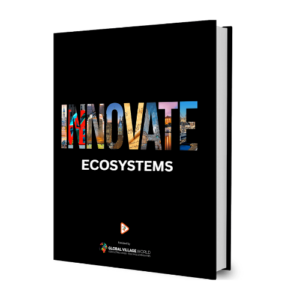Carbometrics is a specialist supramolecular chemistry company based in Bristol whose core competency is the design, synthesis and derivatisation of highly selective and robust synthetic small molecule receptors. The principle technology deployed is the world’s most selective Glucose Binding Molecule (GBM), an advance which is supported by over 20 years of cutting-edge research pioneered by Professor Anthony Davis’ group at the University of Bristol.

Carbometrics was spun-out of Ziylo in August 2018 when the latter was acquired by the Danish diabetes company Novo Nordisk who planned to develop the molecule with Carbometrics and use it as the critical component of a cutting-edge insulin drug discovery programme focused on discovering a – Glucose Sensitive Insulin (GSI). The deal is thought to be one of the largest, if not the largest, deal done for such an early-stage chemistry asset and is testament to the novelty and potential utility of the original Glucose Binding Molecule discovery. Carbometrics was founded by the original directors of Ziylo and is led by the former Ziylo CSO – Dr Andy Chapman as the Chief Executive. At the point of acquisition Dr Chapman negotiated the rights to a back-license to the original GBM technology for nontherapeutic applications. Carbometrics’ goal is to exploit the GBM technology further by developing it to create a highly robust and accurate glucose sensing platform that can be used to create market-leading
Continuous Glucose Monitoring (CGM) sensors. Carbometrics’ mission is to help people with diabetes to live more normal and longer lives. The Company will use their proprietary Biomimetic Glucose Binding Molecules (GBM) to develop a new glucose sensor for placement within market-leading Continuous Glucose Monitors (CGM).

For two decades, Professor Anthony Davis has worked as a supramolecular chemist with a group of scientists at the University of Bristol. Tony decided to target glucose, not only because it is a key macronutrient, but because its chemical properties make it ideal to build a ‘cage’, the synthetic glucose binding molecule, around the glucose molecule. The cage acts as the ‘host’ while the glucose molecule, smaller and shaped like a flat disk with an equivalent top and bottom and a ring around the outside, acts as the ‘guest’. The discovery of an effective glucose binding molecule is, of course, critical to the development of associated medical products such as switches or sensors, or other yet-to-be developed products, that can revolutionise the treatment of diabetes. One of the most intractable issues that Tony worked on for many years was how to make the glucose binding molecule work in water. He developed techniques to design and build an organic-soluble version of the glucose binding molecule and then further techniques to convert it into a water-soluble one. Whilst Tony was always dedicated to his own research he also took a great interest in mentoring and indeed collaborating with promising young scientists who shared his fascination with the complexities of supramolecular chemistry. One such scientist, Harry Destecroix, studying for his PhD under the tutelage of Tony Davis, worked on a particular molecule that proved relatively easy to make and had just the right affinity for glucose. There was, however, one aspect of Harry’s molecule – its lack of selectivity for glucose over all
the other molecules in the blood. During this time, Rob Tromans (a PhD graduate from Davis’ lab and now Senior Scientist at Carbometrics) was working on another design for Tony. He realised the synthesis and tested the binding of this new design, and it was fantastic. Ziylo completely pivoted, working tirelessly on the new molecule to develop it into a glucose sensor and for use in the applications of interest to Novo Nordisk.

Carbometrics continues to collaborate with Novo Nordisk as the GSI project progresses through the drug discovery phases. Simultaneously, Carbometrics is doing its own proof of concept work for glucose sensing systems with a view to partnering again in the development of devices that will rely on the company’s sensing technology. Carbometrics is delighted to be just one part of the burgeoning scientific innovation in Bristol. Highly qualified staff with all the right credentials and application in the field of scientific research can be found in Bristol, particularly at Unit DX, and Carbometrics have always enjoyed strong support from the City of Bristol and University of Bristol.
















